Want to hear more from the actors and creators of your favorite shows and films? Subscribe to The Cinema Spot on YouTube for all of our upcoming interviews!
Managing editor & film and television critic with a Bachelor's of Arts in English Literature with a Writing Minor from the University of Guam. Currently in graduate school completing a Master's in English Literature.
Following last week’s “Feeding” episode, Raised by Wolves Season 2 comes to a numbing end. The second season finale is titled, “Happiness”. Series creator/ executive producer Aaron Guzikowski returns as the writer for the season, while co-executive producer Lukas Ettlin returns to the director’s chair.
In this review, I will be discussing Raised by Wolves Season 2 Episode 8. There will be no spoilers here, as the title of this article suggests. Nonetheless, please read ahead at your own discretion to avoid any possible revelations.
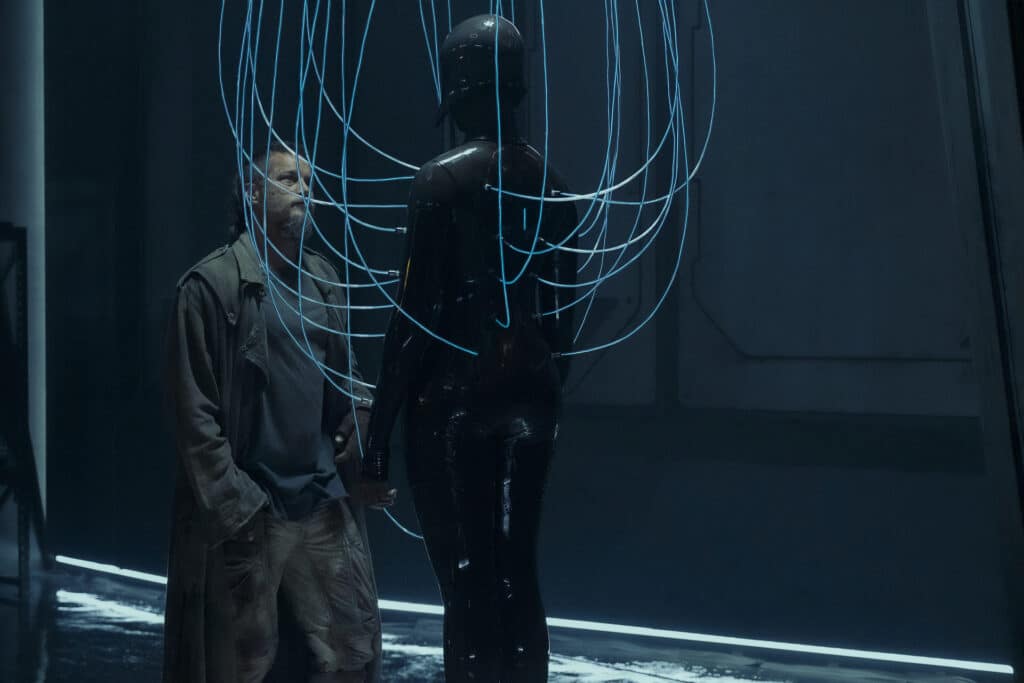
Plot Synopsis
According to WarnerMedia, here is the synopsis for the Raised by Wolves Season 2 finale.
Using Grandmother’s sensory filter to suppress her emotions, Mother goes to impossible lengths to protect Campion — but the fallout proves too painful to bear. Meanwhile, Grandmother reveals her own agenda, and Marcus seeks revenge.
WarnerMedia
Discussion
A few weeks ago, I declared Raised by Wolves Season 2 Episode 5 — “King” as the best episode of the show. Much transpired there, from Mother/ Lamia (Collin) interrogating a loyal follower of the Trust to Sue (Algar) hallucinating a hoard of leeches to Vrille (Santo) killing off Marcus Drusus’s (Fimmel) own followers. However, it is safe to say that “Happiness” is a tough competitor. The actors’ performances, the writing, the scoring, and the costumes are enthralling, providing a strong conclusion to the finale and making die-hard fans want more. In addition, Streitenfeld’s score is excellent, for example, in the scene where Mother and the serpent finally confront one another.
In terms of the writing, Guzikowski and his team did well at giving supporting characters some development. Holly (Shah) was foregrounded into the narrative in “King”, and we further got to see Hunter (Hazzard) and Tempest (Loughran) interact more with their android parents. We even got to see Vita (Wong), Paul (Jamieson), and Campion (McGrath) grow up a little in the several months since the events of the Season 1 finale. There is much say in terms of how the writers develop the story, so allow me to break the Season 2 finale down into its themes.
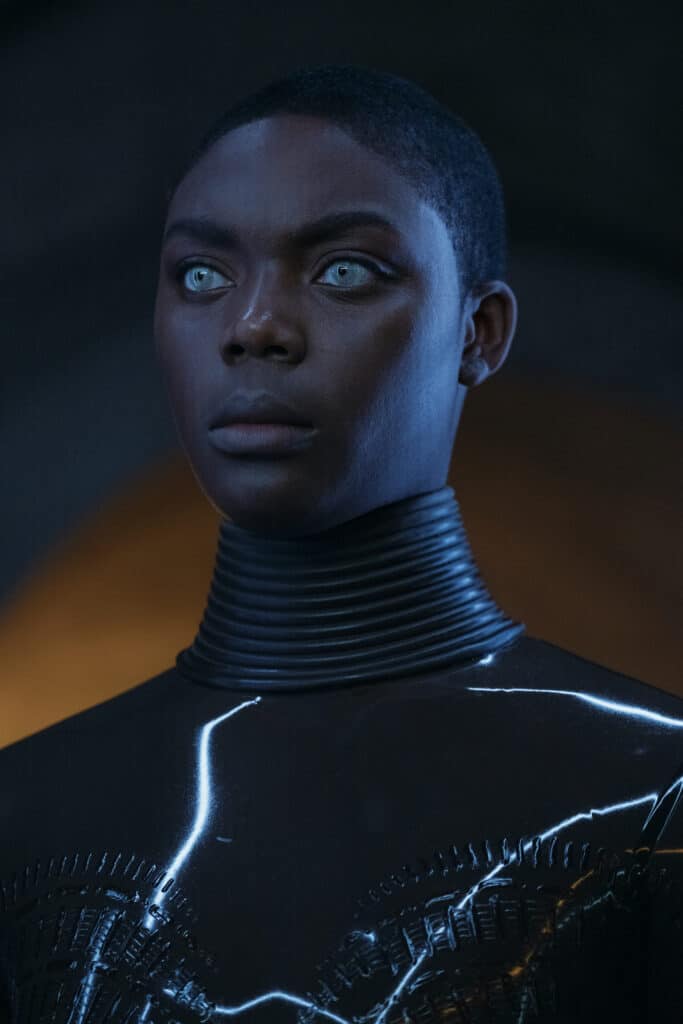
The Gothic Mask Stays On
Raised by Wolves continues to dive into Gothic territory, which started with the uncanny, ghosts, and monsters in “King”. Like last week’s episode, we see some instances of the Gothic mask. Mother dons Grandmother’s (Jones) veil as her last resort to taking down the serpent because, well, she has no other choice left to take. However, that is only the beginning of the episode, and much awaits us after that event. This is teased by Father (Salim), who says that “[w]e’re under threat … the serpent was only one symptom of what is a much larger disease”.
Gothic Nature
We have to remember that there are definitely other threats to the tropical zone, such as the ruby-red blood fruits that come from the Sue tree. This finale involves trees in a few scenes, starting with Vrlille’s tree carvings from the end of last week’s episode. In his critical text, American Gothic Fiction: An Introduction, the late Allan Lloyd-Smith writes of metamorphosis in connection to the Gothic emotions of terror and horror. He states, “The natural and the supernatural are allowed complementary existence through metaphor, allowing the fantastic to emerge within a framing attitude of scientific disbelief”.
There is a frightening inclusion of utilizing Sol as both a natural and supernatural entity. While the Trust was only trying to keep matters of the collective in order, Sol has been around longer. For sure, there was a point in Season 1 where we suspected that Mithraicism was just a cult.
The “fallout” to which WarnerMedia is referring in their synopsis for this finale is what the actual climax of the episode is revealed to be. Mother makes a decision about what to do with the veil. Lloyd-Smith continues in his explanation of Gothic nature as a key theme in American Gothic, writing, “The thing about nature, the thing behind even the veil of a mother’s love (that exemplification of nature’s benignity) is a terror without any apparent reason, a zombie with ‘the mindless malevolence of a wild brute'”. Father used fuel blood in Episode 203 — “Good Creatures” to bring Grandmother back from the dead, so we saw this build-up coming.
Veils
As we remember from my discussion on Alexandra Heller-Nicholas’s Masks in Horror Cinema from last week, the uncanny is the return of what we once perceived as familiar, now in a foreign form. Reanimating Grandmother gives Mother and Father an android who is very much like themselves, albeit more, especially with her own lived experiences.
Heller-Nicholas points to Sigmund Freud’s definition of the uncanny that deals with “repetitions, returns, … ghosts, doppelgangers, animated inanimate objects”; she highlights the doppelganger as crucial in the concept of the Gothic mask, later citing Catherine Spooner who states, “Masks and veil simultaneously reveal and conceal: they foreground the interface between inside and outside, the seen and the unseen, the self and the world”.
It makes sense that Mother finally meets her match, not the serpent, but a worse threat as Father warns. No wonder she is jealous of his secret laboratory project. There is something awfully strange about this new adult android, one who poses as a potential rival to Mother and is referred to as “Grandmother”. Staying on the topic of masks, it is revealed that the Punisher mask — which Mother used to… well, punish others — is stolen from its confinement. By the end of the finale, it seems a couple of characters are not what they initially appeared to be, so let’s be on the lookout for them in the future.
Other Elements of Gothicism
Even the episode title “Happiness” is indicative of what Spooner herself coins in her own critical text, Post-Millennial Gothic: Comedy, Romance and the Rise of Happy Gothic, as “happy Gothic,” a type of contemporary Gothic outlook that is “comic, romantic, celebratory, gleeful, whimsical, or even joyous”. It does not hurt to be vigilant of this thematic mask of “ignorance is bliss”, as some characters have come to remind us.
There is also an almost abhumanity to Tempest’s (Loughran) newborn baby, which was teased last week when the acid sea creature was seen breastfeeding him. However, I believe I have proved my point about the Gothicism of the show.
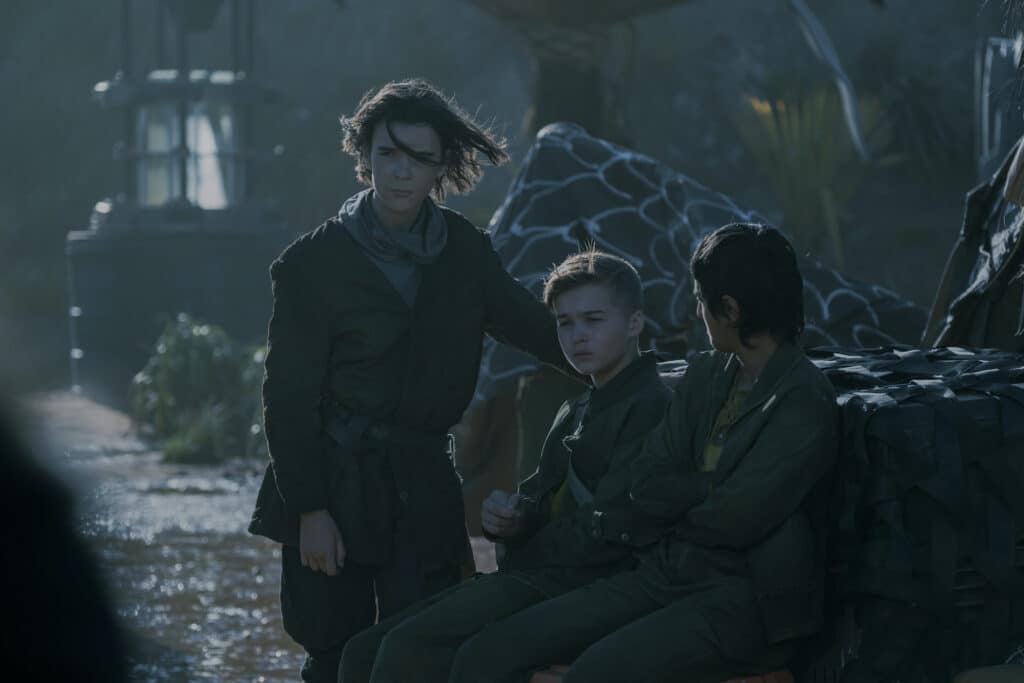
Machine Society
Mother seems to cling to Father’s suggestion from last week that they, the androids, have become all too human. Returning to what I said about Raised by Wolves Episode 206 — “The Tree”, these automatons have a role in their Kepler-22b society, so they must go back to their roots, in a manner of speaking. Not only that, but Hunter had killed the sea creature because he wants Tempest to stay in the role of (human) mother while Holly wants to remain a devout follower of Sol so bad.
Mother, specifically, tells one of the children that “[m]achines do not die. We break down. … Why would you choose to love a machine?” Although thus far, Raised by Wolves has proved that humans and androids have become one and the same; it is too late in trying to differentiate between the two.
Nonetheless, one character tries to reconstruct the tropical zone’s society by changing the “algorithm” that serves as the foundation of the mega-machine, i.e. the socio-political power system. Their plan works, and that’s the scary part…
Welcome to the New Testament
In my brief analysis of Raised by Wolves Episode 202 — “Seven”, I stated that Mother and the serpent are reflections of Eve and serpent in the Book of Genesis. Now that we are finishing the season, I now see them more mirroring the Biblical God and the Satanic snake. Obviously, with the female android’s cross-like stance when in Necromancer mode, she undoubtedly has a god complex about herself. What of the serpent, then? In the Bible, Lucifer is an angel under God who is cast out from Heaven and made to reside in Hell. The snake in this HBO Max series could just represent that doppelganger that I just wrote about, that bridge between two worlds, whatever they may be.
Conversely, Marcus finds himself in an uncanny state, crucified for being in a position that he has chosen to give up. This is only because of what happened to his wife. How romantic, right? However, we will wait for Raised by Wolves Season 3 to find out more.
In the final analysis of this season, there is a third religious aspect to the Season 2 finale that circles back to Gothicism (i.e. in the natural sense) and the machine society. There are a few quotes that I like in the episode, but I will cite one in particular; “When overcome with fear, even atheists will make up gods to pray to. I assure you those prayers will go unanswered. Play the game. That’s how you survive”. It is revolutionary in itself that we have now started to question our institutions, that is, government and religion. This further proves that every single thing down to a virtual video game, a piece of fruit, a mask, etc. serves the higher power that is, again, the mega-machine.
The Crew of the Raised by Wolves Season 2 Finale
Caitlin Saunders is the series’ story editor, while Kolja Brandt serves as the finale’s director of photography.
William Yeh and L. Schroeder return as editors for the finale. Marc Streitenfeld composes the show’s music, while Matt Friedman and James Bladon act as the music editors.
Raymond McIntyre Jr. serves as the series’ visual effects supervisor; while Ruth Irvine-Hauer and David Yrisarri serve as the VFX producers. Victor Dimichina does additional VFX supervision. Rachel Chang serves as the VFX editor and is assisted by Tanya Teresa Phipps.
Tom Hannam serves as the production designer, while Kate Carin and Jamey Scott design the show’s costumes and sound, respectively. Birrie Le Roux returns as the episode’s set decorator. Christa Schoeman designs the hair & make-up, while Jaco Snyman designs the digital art.
Chris Bass serves as the supervising art director. The art directors of the episode consist of Catherine Gaum, Alan Munro, Ella Rushforth, and Jonathan Hely-Hutchinson.
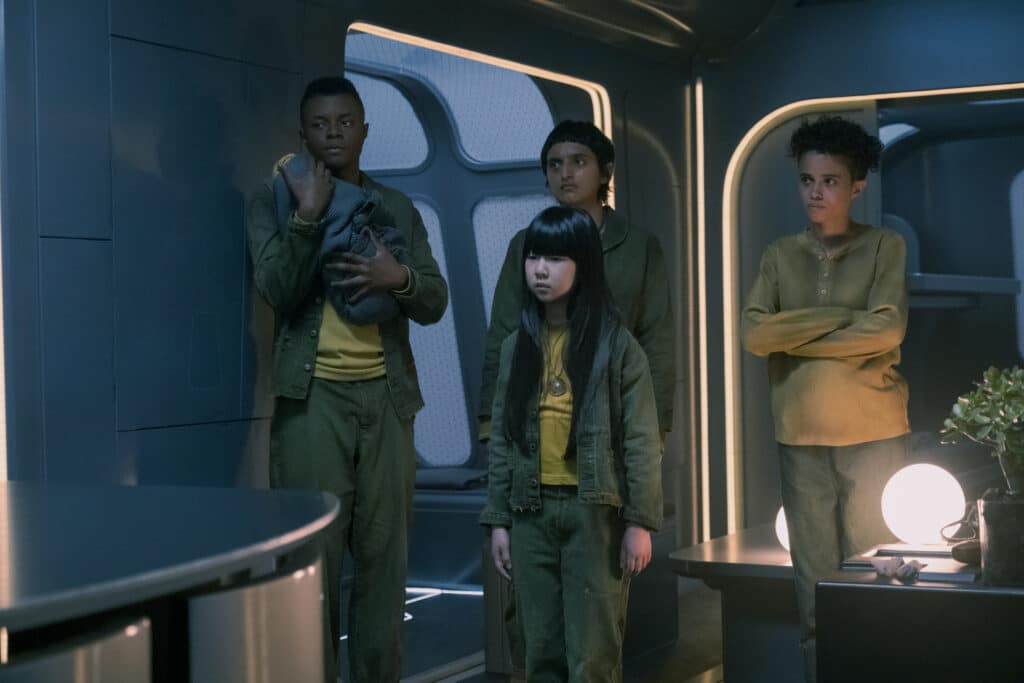
The Cast of Raised by Wolves
Amanda Collin portrays Mother/ Lamia. Abubakar Salim plays Father, while Winta McGrath plays Campion. Jordan Loughran, Felix Jamieson, Ethan Hazzard, Aasiya Shah, and Ivy Wong play Tempest, Paul, Hunter, Holly, and Vita, respectively.
Niamh Algar is given a credit as Sue, while Travis Fimmel plays Marcus Drusus, her husband. Matias Varela returns in the role of Lucius.
Morgan Santo appears as Vrille, while Selina Jones portrays Grandmother. Natalie Robbie appears as Marcella. Jennifer Saayeng portrays Nerva.
Riaz Solker and Jeshua Boshoff portray Mars and a colonist, respectively. Jagger Cameron plays a girl.
Performances and Character Developments
This week’s final episode of Raised by Wolves Season 2 gives fans tremendous performances all over.
The Humans
McGrath delivers a terrific performance as Campion. With him dealing with Vrille’s “shut-down” and his inevitable encounter with the serpent that followed, I believe that the actor is going places. His relationship with Mother has declined, but that has always been the case with Raised by Wolves. Meanwhile, he continues to maintain a lovely brotherhood with Paul. This dynamic has had its challenges over the past two seasons, but they never seem to fall off.
Loughran and Hazzard perform just as well, giving their best in a laboratory scene. I will not say whose lab, but it is their discovery of something horrific that completely shocked me. Their relationship as brother and sister has always been something that was nice to see whenever they share the spotlight together.
The Androids
Salim portrays Father’s naïvety perfectly. He witnesses a certain human celebratory activity/ event, his reaction being curious, childlike, full of wonder. There is something pure in his facial expression that adds a layer of emotion to the character. He has a human type of fear and joy that is his own, and not just mimicked as a display to others.
As teased in previous episodes of the season, we get to see Grandmother unveiled, and she is stunning. Jones performs an almost unblinking personality. In the prior episodes, we got to watch a dynamic develop between her and Father. However, in this finale, they get to see each other face-to-face, rather than face-to… veil. Grandmother has become the type of character that you will hate to love or love to hate, so it is safe to say that her role in Season 3 — WarnerMedia, just renew it already — will be rather intriguing. Her use of rhetoric is clever and cunning, and there is no doubt she will do well in future episodes.
Lastly, Collin is at her best during the latter half — or shall we say, the third act — of the episode. Never did I think that Mother would become a victim, but not of her own doing. Mother is the android who has always aimed to do better for the little cog of which she plays a part. She is, as the wise philosophers say, a desiring machine. Aren’t we all?
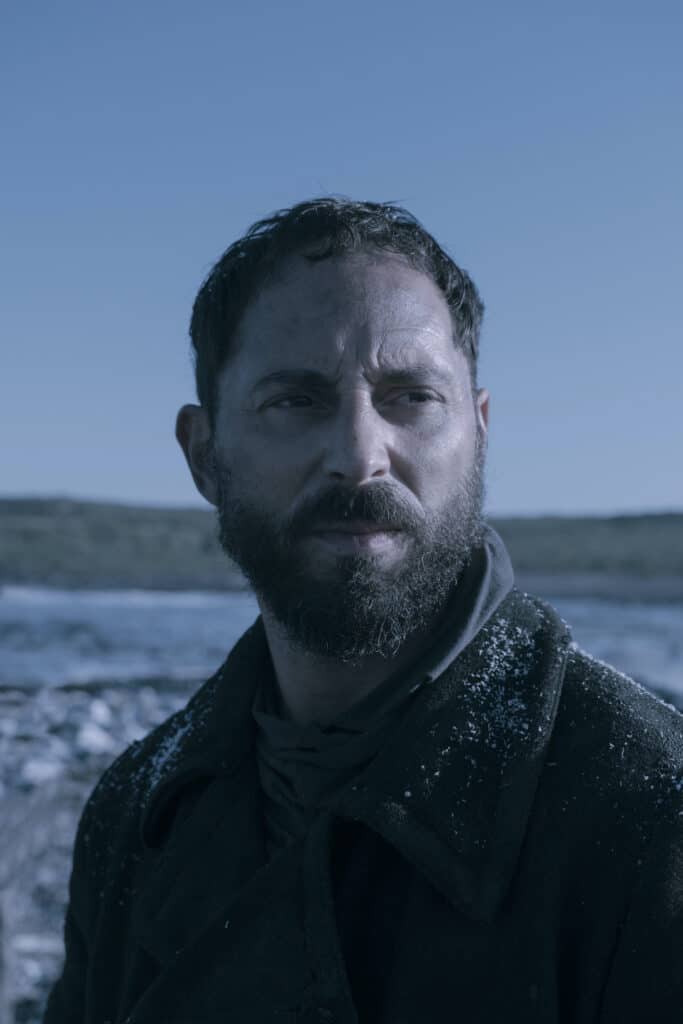
Final Thoughts on the Raised by Wolves Season 2 Finale
The Season 2 finale of Raised by Wolves ends in a similar fashion to Jordan Peele’s Get Out, Leigh Whannell’s Upgrade, and Ridley Scott’s Alien: Covenant. “Happiness” gave me a more profound appreciation for those films, and upon my second watch, I do believe that it is just as worthy of merit as “King”. It shows promise of what the next story arc is, that maybe we will find the cult that has been teased every now and then. For all the reasonings I provided above, indeed, it is probably right to believe that Raised by Wolves should be rendered science-fiction. Eventually, these things will be true… Right?
Raised by Wolves Season 2 is now available to stream via HBO Max!
Have you seen the new season of Guzikowski’s series? If so, then what are your thoughts on it so far? Let us know! For more drama and science-fiction-related news and reviews visit and follow The Cinema Spot on Facebook, Twitter, and Instagram!
Sources: Heller-Nicholas, Alexandra. Masks in Horror Cinema: Eyes Without Faces. University of Wales Press, 2019. Print.
Lloyd-Smith, Allan. American Gothic Fiction: An Introduction. (Annotated ed.). Continuum, 2004. PDF.
Spooner, Catherine. “Introduction”. Post-Millennial Gothic: Comedy, Romance and the Rise of Happy Gothic. Bloomsbury Academic, 2017, pp. 1-28.
Managing editor & film and television critic with a Bachelor's of Arts in English Literature with a Writing Minor from the University of Guam. Currently in graduate school completing a Master's in English Literature.


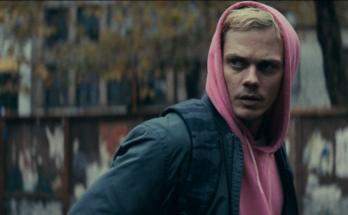
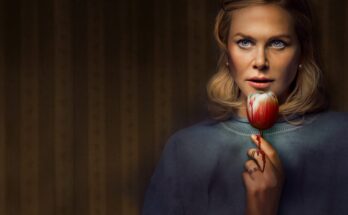
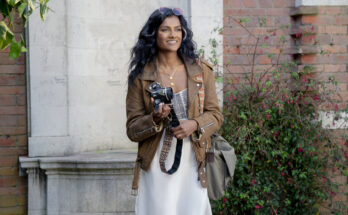
18 Comments on “‘Raised By Wolves’ Season 2 Finale Non-Spoiler Review – “Happiness””